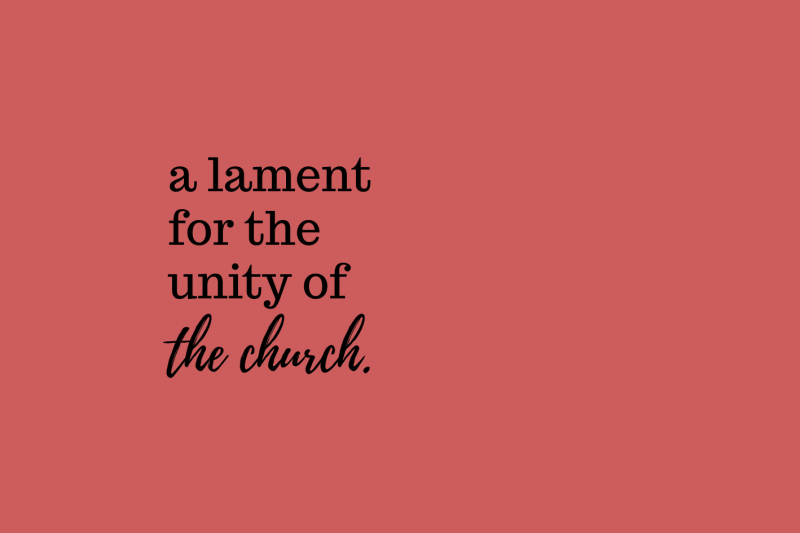The other day, I read Psalm 42: a psalm full of such brutal honesty that I felt like I was intruding on someone’s private journal. The author drew out his unfiltered emotions and threw them onto a page…and now we get to read what he wrote.
Honestly, the author’s “realness” is probably why I related to it so much. When I’m confused or hurt and need time to “process,” I often seek out space to be alone and simply write through all of my thoughts. There’s something therapeutic about writing to me—it allows me to let go of what I can’t control and remind myself of what is true.
I don’t know what processing looks like for you. Maybe you’re a verbal processor or maybe you like to go to the gym. Maybe you’re less of a processor and more of a “take action” kind of guy (or gal). 🙂
But no matter how you would describe yourself, I think anyone can relate to what this psalmist has to say.
To start, we get a fairly raw picture of the state of his soul. The psalmist holds nothing back as he admits that “[his] tears have been [his] food day and night” ( Ps 42:3, ESV). And not only that, his soul is “cast down,” “in turmoil within [him]” (42:5).
This author puts words to what so many of us feel as though we cannot fully express.
Sometimes we can’t express these emotions because we don’t have the words.
Other times we feel as though we simply are not allowed.
As Christians, we want to feel close to God. We want a strong prayer life. And we want others to think we’re close to God and that we have a strong prayer life.
We don’t want to admit that there’s a part of us that no one really sees, a part of us where sometimes our souls are crying for relief from the pressures of this world—the pressures of unyielding sin and broken relationships, of hidden pain and unexpected life change.
I don’t know what this ‘something’ is for you—whether you hurt deeply because you have lost someone you love, or whether you have failed to represent Christ well, or whether you have harbored bitterness in your heart for far too long. Or maybe it’s something else altogether.
I think the author of Psalm 42 does a good job of pointing out the reality that this brokenness and pain clearly exists. But he also leaves us with two practical truths that we can walk away with and apply.
Hold On To These Truths
First, we need to realize that it’s okay to be honest about the state of our souls. Maybe social media isn’t the right place to articulate our deepest, darkest thoughts… But that’s why we have mentors, friends, and professional counselors. When we’re inwardly struggling, these emotions simply cannot stay buried inside if we want to remain (or become) healthy individuals.
That’s one thing I love about Psalm 42. The author doesn’t hide from these hard truths. He doesn’t pretend to feel good when he clearly does not. He doesn’t hide from the fact that he is in a low place.
But even as he admits to this state of despair, he does not turn from God in anger or defeat.
Rather, he takes his downcast soul and turns towards God in worship. And in this simple act of reverence, the psalmist reminds me of a second important truth:
It is possible to worship our God even when our souls hurt and we don’t feel Him near.
I’ll say it again:
Our worship is not dependent on how we feel.
Of course, it’s easier to worship when we feel him close—when we’ve hit a spiritual high, when life is going well, or when his faithfulness is oh-so-clear.
But the times when none of those things ring true?
It may not come so natural, but we can worship then, too. And even in times like that, our worship is not deficient or “less than.” We begin by reminding ourselves of the ways he has proven himself to us in the past.
We remind ourselves that our God is good (1 Corinthians 16:34).
That He is faithful (Hebrews 10:23).
That He is worthy of our praise (Psalm 63:3-4; Romans 11:36).
Worship is not an emotional state brought about by nice lighting and a talented band and powerful lyrics (though all of those elements can certainly be used for his glory).
Rather, worship is a choice—and this psalmist understands this truth. He recognizes that worship is an internal decision where we present God with the glory he rightly deserves.
And by proclaiming his goodness and his past faithfulness, we bring him this honor and glory independent of how we feel.
Worship Is a Choice
Towards the end of the chapter, the author continues to bare his soul. He cries out to God, saying, “Why have you forgotten me?” (42:9).
He feels forsaken, but what he knows is truer than what he feels (thank goodness). So even as this psalmist expresses his very real doubts to God, he chooses to NOT act based off of his emotions. Rather, he acts according to the truth. And in the final verse of this psalm, he questions one last time and then declares:
“Why are you cast down, O my soul,
and why are you in turmoil within me?
Hope in God; for I shall again praise him,
my salvation and my God” (42:11).
We see his internal struggle. He wrestles with what he feels but ultimately chooses to act in accordance with the truth. And in the end, while his emotions did not change and his turmoil remained, he chose to worship nonetheless.
* * * * *
What, then, does this psalm mean for us today?
I think verse 4 is a good place to start.
“These things I remember, as I pour out my soul: how I would go with the throng and lead them in procession to the house of God with glad shouts and songs of praise, a multitude keeping festival.” ~ Psalm 42:4
For you and me, It is good to remember the times when “glad shouts and songs of praise” (42:4) came easy. Memories of when it was easy to worship God help us to persevere and worship through the seasons of life marked by pain—seasons where it feels like we have been forgotten by Him.
There are Sundays when I’m physically present in church but mentally, I’m far, far away. I think about the million papers I need to write before Wednesday (that may be a slight exaggeration) and I think about so-and-so who seems no longer interested in our friendship. In these moments, instead of choosing to worship, I choose to foster stress and bitterness in my heart.
But this is where the ‘remembering’ comes into play. I must choose to redirect my thoughts towards God and remember the beautiful friendships he has given me and the hope for reconciliation that he provides. I must remember why the opportunity to write a million papers by Wednesday is actually a gift from God.
Sometimes our minds are distracted by far greater and far more painful things than the examples I’ve provided…
But even then, we can know that the good times may (and most likely will) come again. Until then, we can choose three things.
We can choose…
(1.) to be honest with the state of our souls,
(2.) to rely on what we know to be true about our God, and
(3.) to worship Him despite how we feel.
I would encourage you to go to God in prayer and to read your Bible, even on the days you don’t feel like it. Especially on the days that you would rather do anything else.
Know that I’m praying for everyone who reads this post—especially for those of you who are hurting and struggling to worship.
I pray that you won’t be afraid of being honest with where you’re at and that you can remember who your God is. I pray that you would choose to proclaim his goodness and faithfulness and respond to him in worship…because your worship is not dependent on how you feel.
“The Lord bless you and keep you;
the Lord make his face to shine upon you and be gracious to you;
the Lord lift up his countenance upon you and give you peace.”
~Numbers 6:24-26







Such a great word for today Samantha! Thank you for writing and expressing truth so eloquently yet plainly❣️
Love you, Grandma!